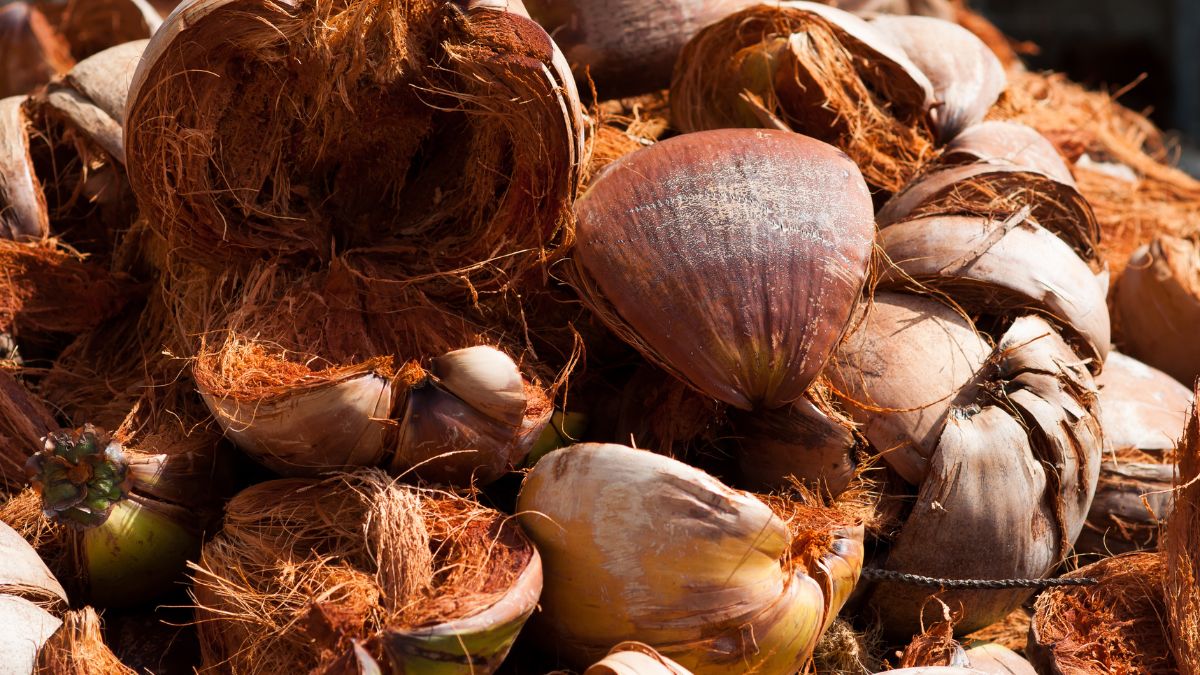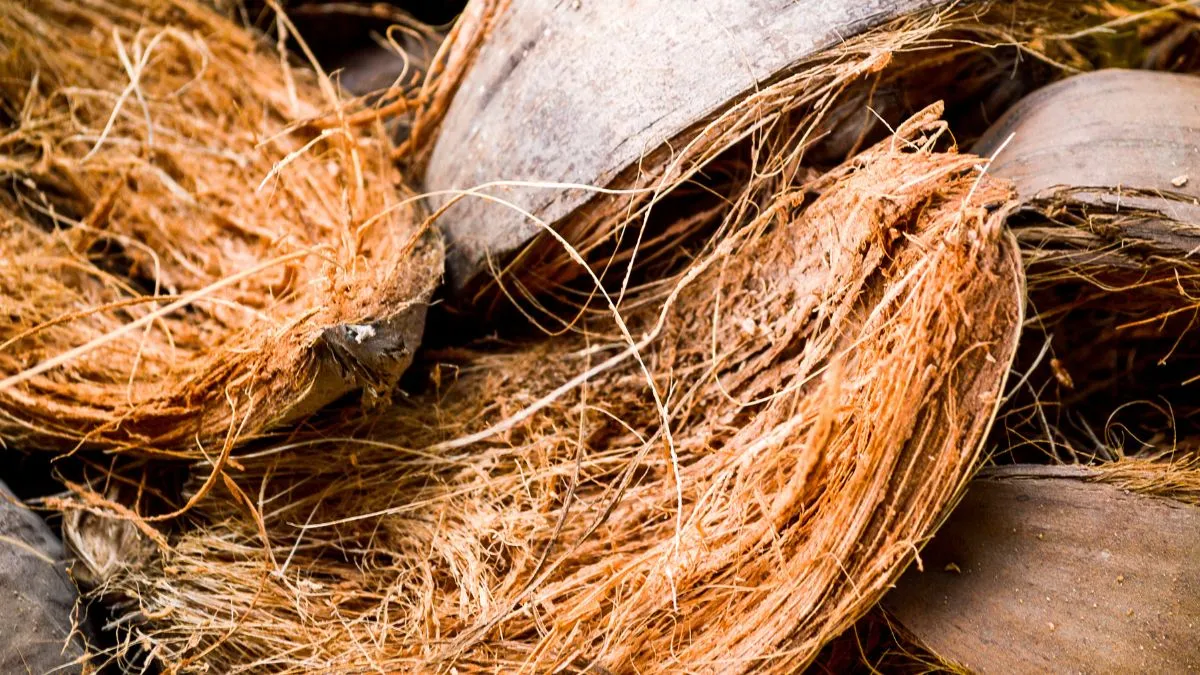- By Bornika Das
- Sat, 04 Oct 2025 11:07 AM (IST)
- Source:JND
Coconut Husk Uses: Coconut husk is a byproduct of coconut harvesting, making it sustainable. Husk, the fibrous outer layer of coconuts, is actually one of the most multi-purpose resources in nature. These rough outer covers contain unlimited possibilities for green uses that can serve the purpose for home, garden and planet. These coconut husks are a recyclable substitute for man-made products that help avoid wasting resources, cut costs and encourage more sustainable living, making them a real gem of sustainability that few pay attention to.
Coconut husk’s coarse and fibrous texture offers a wealth of utilitarian potential. When creatively reused, it is a hardwearing, biodegradable material well-suited to many applications in everyday life. Coconut husk uses range from gardening, home design and as a crafting material, which are eco-friendly in nature. Here are seven clever uses of coconut husk that you never knew about.
Eco-Friendly Uses Of Coconut Husk
Coir Production
Coconut husk is processed to make coir (coconut fibre), used for ropes, mats, brushes and erosion control mats.
ALSO READ: Why Hindus Break Coconut Before Any Auspicious Event? Know Reason Behind This Ritual
Mulching
Coir or husk chips are excellent mulch for gardening, retaining moisture and suppressing weeds.
Potting Mix
Coir is a popular, sustainable component in potting mixes for plants, improving aeration and water retention.

Coconut Husk Uses (Image Credits: Canva)
Crafts and Handicrafts
Husks can be used for making decorative items like baskets, doormats and ornaments.
Animal Bedding
Coconut husk can serve as bedding for pets or livestock due to its absorbency.
ALSO READ: Coconut vs Tender Coconut: Which Is A Healthier Choice For You?
Biofilter Media
Coir's properties make it useful in water filtration systems, straining the residue from water and helping to get crystal, clear water.
Fuel
Dried coconut husks can be used as biomass fuel.
Thus, coconut husk is an eco-friendly material that serves multiple purposes in people’s everyday lives. This sustainable product is used at home, in the garden, and for the planet. Over the years, they have met the needs of the people without producing waste.

